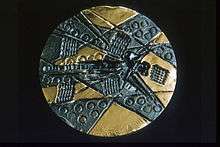Vincent T. DeVita


Vincent Theodore DeVita, Jr., MD (born March 7, 1935) is an internationally recognized pioneer physician in the field of oncology. He was born in The Bronx, New York.[1]
DeVita earned his Bachelor of Science degree from the College of William and Mary in 1957. He was awarded his MD degree with distinction from the George Washington University School of Medicine in 1961.[2]
DeVita spent the early part of his career at the National Cancer Institute (NCI). In 1980, the president of the United States appointed him as director of the NCI and the National Cancer Program,[3] a position he held until 1988. While at the NCI, he was instrumental in developing combination chemotherapy programs that ultimately led to an effective regimen of curative chemotherapy for Hodgkin's disease and diffuse large cell lymphomas. Along with colleagues at the NCI, he developed the four-drug combination, known by the acronym MOPP, which increased the cure rate for patients with advanced Hodgkin's disease from nearly zero to over 70%.
In addition, in collaboration with Dr. George Canellos, DeVita developed the combination chemotherapy CMF, which still remains a useful therapy for breast cancer.
DeVita was the Director of Yale Cancer Center from 1993 to 2003. He is currently the chair of the Yale Cancer Center advisory board and is professor of internal medicine and of epidemiology and public health at Yale's medical school.
DeVita currently serves on the editorial boards of numerous scientific journals and is the author or co-author of more than 450 scientific articles. He is one of the three editors of the popular textbook (also available online) Cancer: Principles and Practice of Oncology and serves as the editor-in-chief of The Cancer Journal.
He is also the co-author of the autobiographical book, The Death of Cancer: After Fifty Years on the Front Lines of Medicine, a Pioneering Oncologist Reveals Why the War on Cancer Is Winnable—and How We Can Get There. As deVita tells it, he was one of a group of oncologists who were the first to use chemotherapy, even though it was toxic and other oncologists thought that it would do more harm than good. In his account, his group was the first to cure Hodgkin's disease, at a time when most cancers could not be cured[4]
He was a participant in Ken Burns' 2015 PBS documentary Cancer.
Personal
Vincent DeVita diagnosed his son Ted as a child with aplastic anemia. Ted thereafter was placed in a sterile environment for his safety, and died in 1980 at the age of 17. Ted's situation, and that of David Vetter, inspired the 1976 TV movie The Boy in the Plastic Bubble starring John Travolta.
See also
- Cancer (2015 PBS film)
- History of cancer
- History of cancer chemotherapy
- The Emperor of All Maladies: A Biography of Cancer
- The Death of Cancer: After Fifty Years on the Front Lines of Medicine, a Pioneering Oncologist Reveals Why the War on Cancer Is Winnable--and How We Can Get There
References
- ↑
- ↑ (12 June 2007) Vincent T. DeVita, Jr., MD Honored by ASCO, Webwire (press release), Retrieved October 28, 2010
- ↑ Greenberg, Daniel S. A Conversation with Vincent T. DeVita, Jr., M.D., The New England Journal of Medicine, 1980; 303:1014-1016, Retrieved October 28, 2010
- ↑ Review: Science and Politics Collide in ‘The Death of Cancer’, By Abigail Zugner, New York Times, Nov. 30, 2015